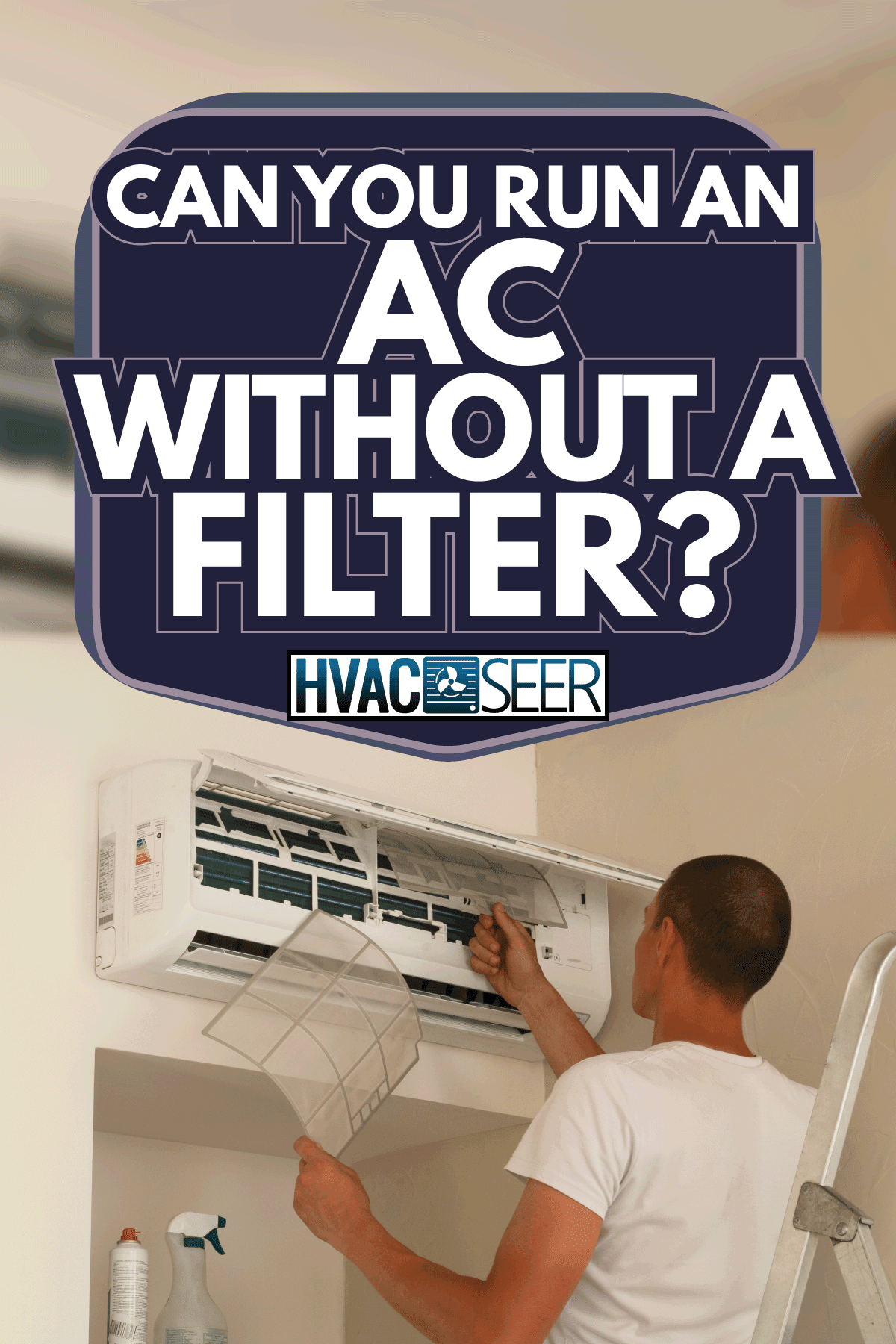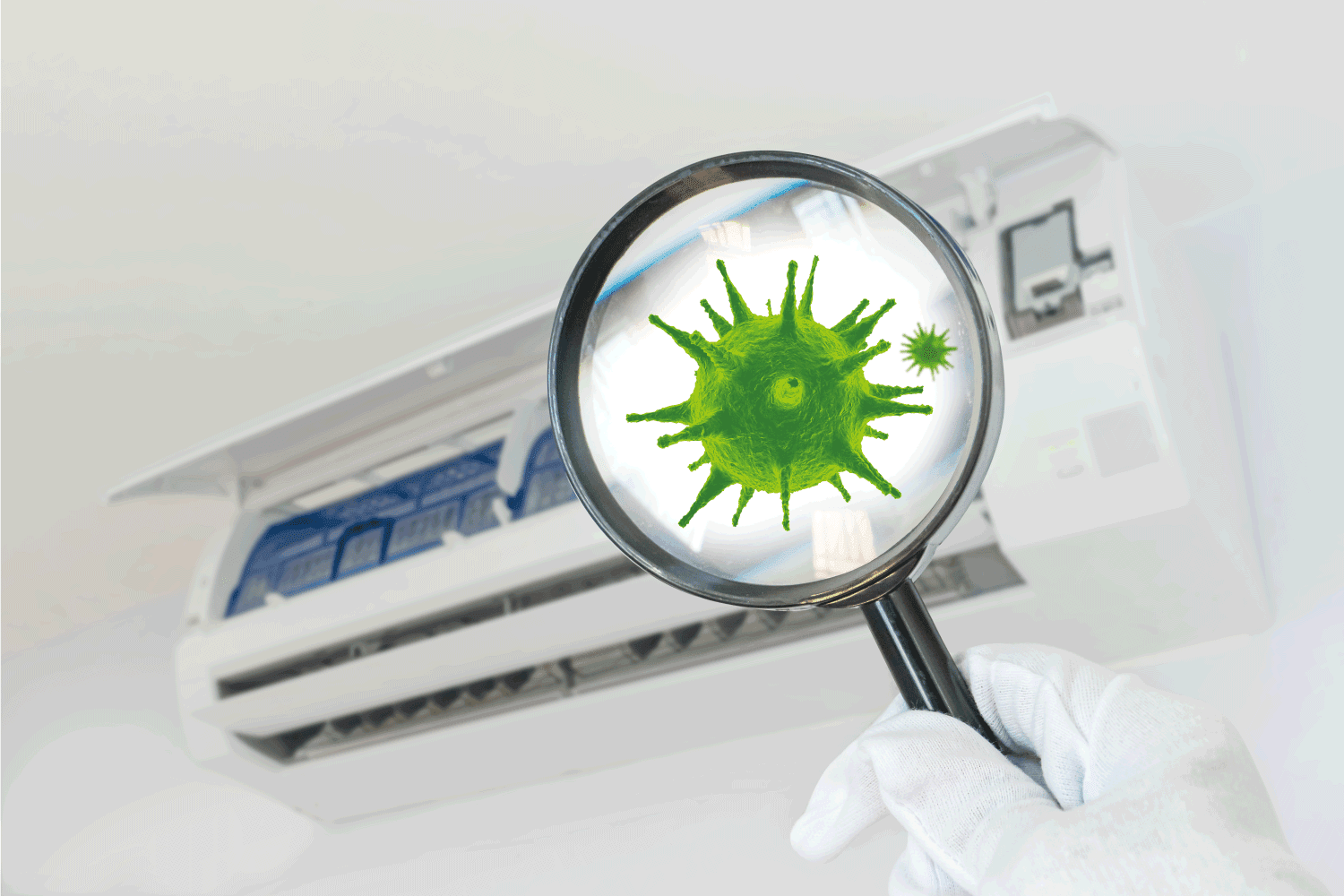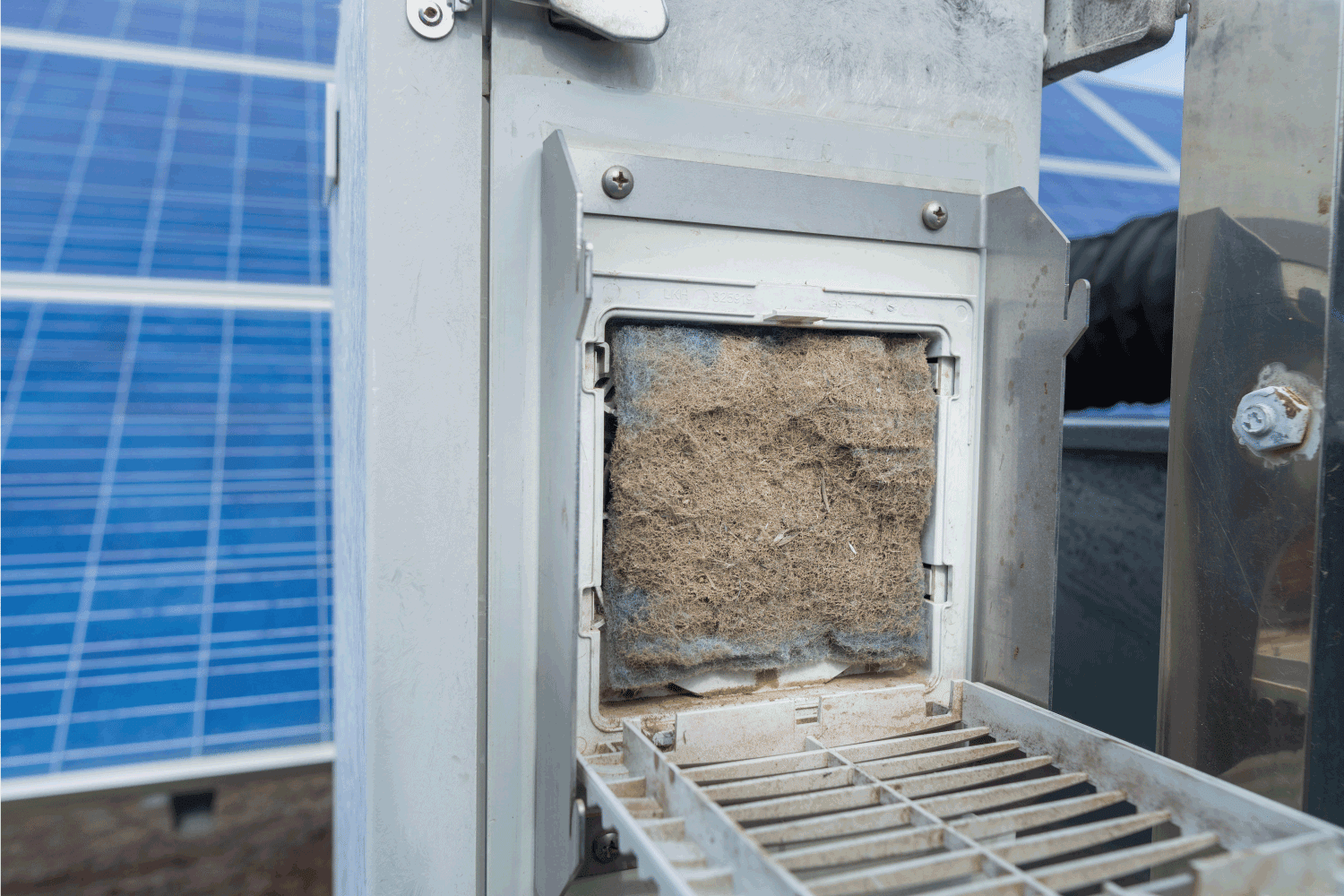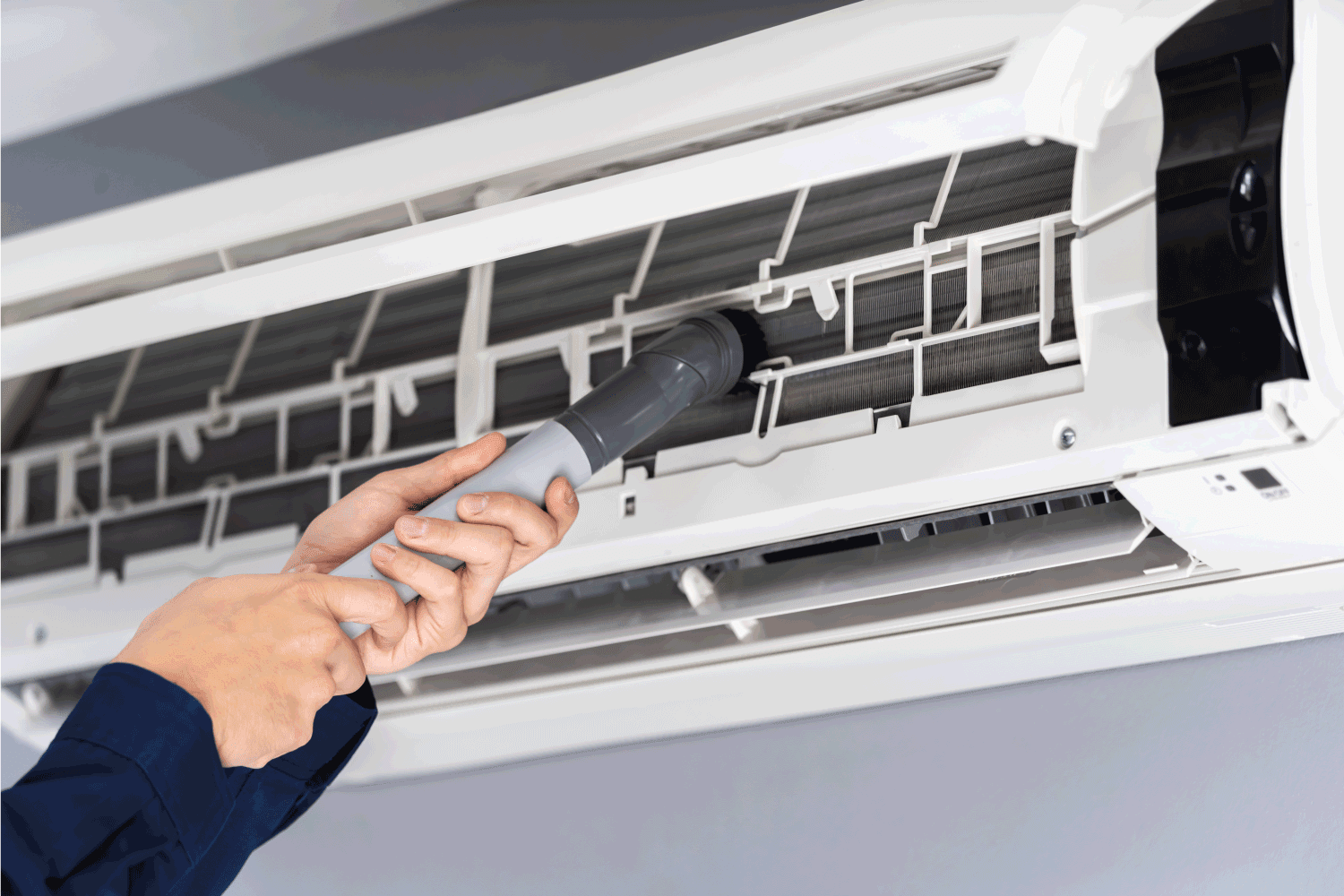There may be times you need to run the air conditioner without a filter. However, you may wonder if running your AC without one will damage it. We've researched if it's safe to run an AC without a filter, and have the best answers for you.
In theory, you can run your air conditioner without a filter for a limited period. However, doing so for more than 6-8 hours can be harmful to your system and reduce your home's indoor air quality.
Now that you know it's possible, you might want to investigate what happens if you run it without a filter. How long do you expect to be able to use it without a filter? What causes a filter to become dirty in the first place, anyway? Continue reading as we delve into answering each question you have about running an AC with or without a filter.

What Does The AC Filter Do?
The air conditioner filter serves two functions. The first one is to prevent air pollutants from penetrating inside the air conditioner system. The air conditioner draws air from your indoor environment and cools it down before dispensing back into your indoor environment.
When dirt penetrates inside the AC, this speeds up wear and damage to its cooling system components. When this happens, you will need to replace the entire air conditioner unit.
The second function is to maintain the dispensed air purified, as air passes through the filtration cooling tubes and ductwork. These fiberglass tubes can eliminate most air pollutants and air contaminants such as the following:
- Dust, dirt, pollen, and other tiny substances
- Airborne offensive substances
- Mold spores and other fungal bacteria
Without a filter, you don't stand a chance to prevent all of these air contaminants when returning to your indoor environment.

Issues When Running The AC Without A Filter
The air filter's job along with the compressor motor and evaporator coils is to keep air contaminants from entering your AC. Dirt and dust are leading causes of your air conditioner breakdown. Your AC will run without a filter temporarily, but the following issues may occur when running your AC unit without a filter installed:
Overheating the AC Unit
The air conditioner blower serves a cooling effect on your living space. However, when the filter is clogged the blower motor will force it to operate even harder tantamount to its current setup. This overworking will result in overheating your air conditioner. In the end, your air conditioner will wear out much faster than its expected life cycle.
Over Consumption Of Energy
A clogged filter will result in the blower motor performing its task even more compared to its usual operation flow. Thus, It will require even more energy to consume.
In addition, during the hot season expect your energy consumption to surge even higher considering the AC unit operates continuously. An obstructed airflow due to the lack of a functioning filter may result in an increase in energy consumption by 5% to 15%.
Air Quality Problems
A common problem if you operate your air conditioner without a filter is the indoor air quality will deteriorate. As dust and dirt penetrate inside your AC, this contaminant will blow back repeatedly and remain suspended in the air.
The more likely you leave the above issue unsettled the more alarming it gets as your household's health is being at stake. As this may cause eye irritation, nose irritation, respiratory issues, and trigger other allergic issues in their body.
Freon Tube Issues
An air conditioner works by drawing air from your environment and blowing it back through the AC's fiberglass tubes with freon.
When unfiltered air blows through these wet tubes, air debris gets stuck into the condenser and blends along with its tubes. This will result in the system working ineffectively or worst not functioning anymore.
Frozen Evaporator Coils
Your air conditioner's evaporator coils are in charge of converting the refrigerant into the system. By absorbing heat from the air, it transforms from liquid to gas. The refrigerant is then delivered to the condenser, where it is turned back into liquid before being released outside.
If you have dirty filters in your AC or no filter at all, dirt and debris will build inside as it attaches to the coils and fins, then creating a thick blanket of dust over your coils. The passing air can no longer reach the coils, which means the coils are unable to chill the air. As a result, the entire AC system can no longer provide comfortable cool air inside your house.
Ductwork Issues
Ductwork is used for forced air movement in heating, ventilation, and air conditioning. This airflow involves the supply of heated or cooled air from within your home.
When air contaminants pass through freon tubes, trapped molds and dirt build up inside the ductwork. This allows all air pollutants to blend with the air when it blows back across your surrounding area. Other than this, it's also the possible reason why your household members get a random allergic reaction.
Inadequate Temperatures
One of the manifestations, when your filter is clogged, is the inadequate distribution of cool air into your surrounding area. You may notice that the desired temperature setup isn't that accurate anymore making your room like scorching prison. When this happened you should check immediately your air conditioner's filter.
Condensate Drain Issues
You might not consider your drain line to be particularly important. Material such as pet hair, grime, and dust can plug your drain line, which can be a problem.
Running the AC without a filter will cause the condensate drainage not to drain the stuck-up moisture from the AC. Eventually, the freon tube's over-accumulation of condensation moisture leads to a water leak and can damage the entire system.
What Will Happen If You Fail To Replace The AC Filter?
Filters aren't designed to block the air for the rest of time. Regardless of what type of AC unit you use, ideally, they need regular inspection and proper maintenance.
Failing to replace the AC filter will lead to dust, dirt, and other air debris to clogged your AC unit airflow. Sooner than expected it will start to function ineffectively and no longer provide appropriate filtration to the AC.

Why Should You Replace Your AC Filter Regularly?
Regular maintenance of your AC filter will ensure that the air conditioner dispenses the best quality of air that fits your environment's required condition. Also, it minimizes the chances of AC unit breakdown due to a clogged AC filter. Having a clogged air conditioner filter demands your AC unit to forcibly work overly from its usual job.
Your system will work more efficiently if you replace your air filters regularly. Dust and debris will be kept out of your system and ducts by the air filter. This can help prevent blockages, resulting in increased energy efficiency and lower electricity expenses.
How Often Should You Replace the AC filter?
Most AC filter manufacturers recommend that you change your air filter every 90 days, or 3 months. This varies depending on where you live (for example, dusty, dry areas), and the age of your system and equipment. If you have pets, you should change your filter every 60 days or 2 months.
Living around folks with allergies or respiratory illnesses, you should change your filter every 20-45 days. According to popular belief, the more you use your AC, the more frequently you should change your air filter.
How To Clean The AC Filter
Even if you clean or replace your filter regularly, dust and particles will eventually collect. This is why, to ensure complete cleaning, it's best to let the vacuum suction all of the debris out.
Use your vacuum's medium setting, and be careful not to damage the filter. Large debris can also be removed using your hands. You can also watch this video for a simple guide:
Top tip: Because a handheld vacuum is easier to manipulate and aim toward specific areas that require additional cleaning, it's great for this work.

To Wrap Up
Now that you know your AC shouldn't run for more than 8 hours without a filter, you might as well maintain it regularly. Cleaning your central AC filter helps the unit produce cool air consistently and keep the air in your home pure and healthy.
Before you go, check out these other posts:
Does A Furnace Lose Efficiency Over Time?
